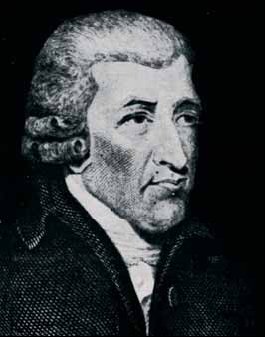 On 7th April 1827, John Walker, of Stockton-on-Tees in County Durham, England, sells the first friction matches in his chemist shop to a local solicitor called Hixon. Walker served his apprenticeship with the Stockton surgeon Watson Alcock, before learning the druggist trade in York and Durham. He opened his druggist and chemist shop at 59, High Street, Stockton in 1819.
On 7th April 1827, John Walker, of Stockton-on-Tees in County Durham, England, sells the first friction matches in his chemist shop to a local solicitor called Hixon. Walker served his apprenticeship with the Stockton surgeon Watson Alcock, before learning the druggist trade in York and Durham. He opened his druggist and chemist shop at 59, High Street, Stockton in 1819.
His keen interest in chemistry resulted in his accidental invention of these ‘friction lights’, as he called them, the year before. He wiped a stick covered with a mixture of potassium chlorate and antimony sulphide on his hearth at his home. The scientist Michael Faraday attempted to persuade Walker to take out a patent on his invention, but he chose not to claiming that he was a doctor and not an inventor.
In 1829 a Londoner called Samuel Jones became the first to commercially exploit the matches. Like Walker he did not patent the matches or the name by which he marketed them: ‘Lucifers’. Many other chemists made and sold their own ‘Lucifers’ and the name stuck, much to the annoyance of Walker who so disliked the name that he stopped selling his own invention during the 1830s.
For more information of John Walker see the Stockton Borough Council
